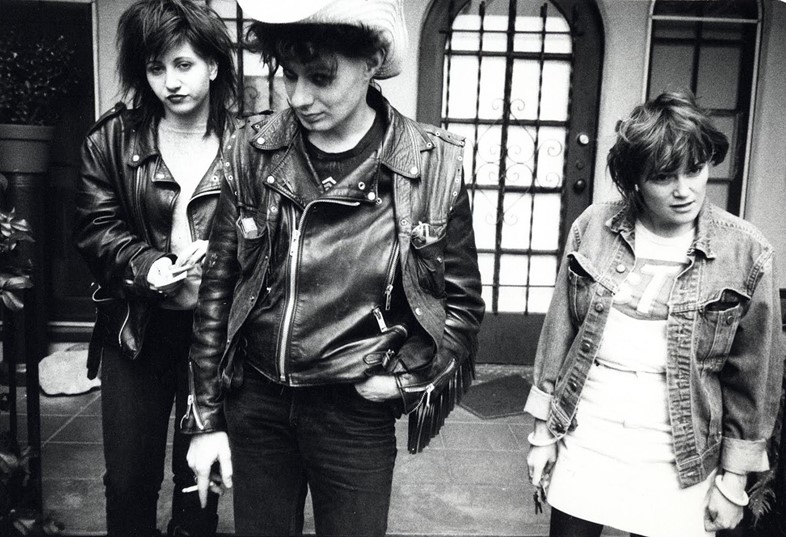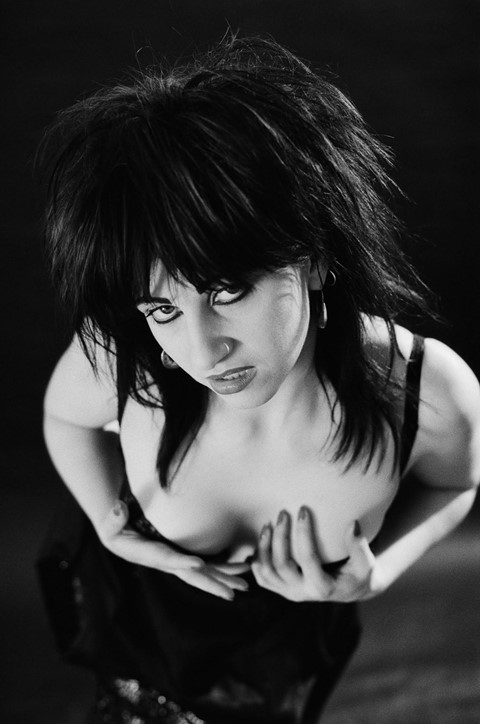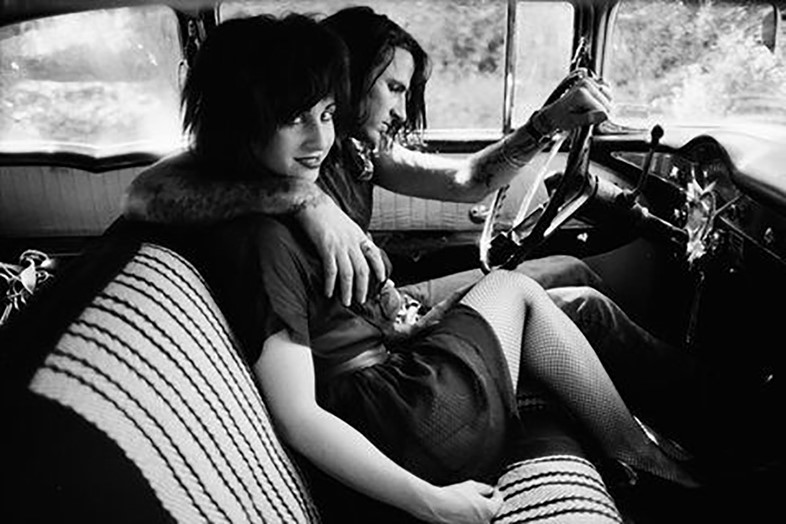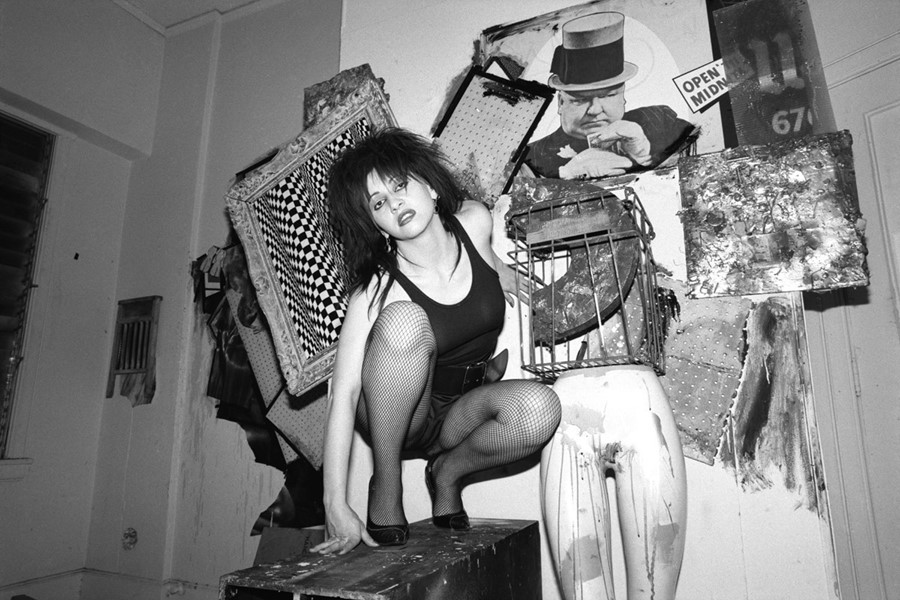Tracing the nihilist style of the No Wave doyenne
Before riot girls of the 90s, there was the rage of Lydia Lunch, singer in Teenage Jesus and The Jerks, artist, author and now, motivational speaker. Born Lydia Anne Koch, but given her moniker by singer Willy DeVille for apparently stealing lunches from punk band the Dead boys, Lunch was doyenne of the New York-based No Wave movement of the mid 70s to 80s.
It's an era that Lunch describes in Thurston Moore and Byron Coley’s book No Wave: Post-Punk. Underground. New York 1976-1980 as feeling like “the apocalypse had happened. It felt like this city was the end of the world.”
This was post-punk in the sense the movement could not have happened if punk hadn’t gone before. No Wave too sat outside the confines of popular culture, offering a grittier and more subversive narrative to the era than the hangover from Andy Warhol’s glitzy Studio 54 and spangly disco. In Lunch’s own words American punk was about “personal insanity, personified and thrown on stage.” And No Wave – more introspective – had an all together more destructive and nihilist vibe, intent on creating art that not only challenged but destroyed, unsettled, and at times, repulsed.

Confrontational Style
Blasting out her vocals on stage, Lydia Lunch cut a powerful, even intimidating figure, as her personal style walked a fine line between titillating and aggressive. Black fishnet, and sheer nipple-revealing tops were a go-to look. At other times Lunch struck a jarring discord by offsetting pretty dresses with a snarl of black lipstick. Lunch’s look simultaneously seduced and challenged – a hybrid of femininity and urban edge.
Her confrontational performances tapped into a well of pain and anger she carried with her from a difficult past. “I always knew what I was tapping into,” she said in Moore’s book, “that pain was a universal thing. It was more universal even than love. So if it’s bigger than I am, I’m just the messenger. I’m not the only one who feels this kind of anger. Maybe it’s guys feeling this kind of anger, or at least embodying it, because women are turning the knives inward.” Original riot girl Kathleen Hannah, singer of Bikini Kill, concurs. She recently told the New York Times, “[Lunch] is the first singer I ever heard who could invoke female lust and horrific abuse in the same phrase.”

Richard Kern on Lydia Lunch
Another face on the No Wave scene was a young photographer and filmmaker Richard Kern – now known for his candid and provocative shots that capture a rawness and naivety of feminine sexuality. In 80s New York, Kern's experimental films were much more provocative than even the up-skirt shots or naked girls smoking weed series that he is most commonly associated with now. During No Wave, Lunch appeared in Kern’s films Fingered, Submit to Me and The Right Side of my Brain, which watch like an endurance test of stamina to withstand visceral imagery.
Speaking exclusively AnOther about Lunch for this article, Kern said: “Lydia always dressed as if she deliberately wanted to provoke people. Many times I'd be walking through the East Village or riding the subway with her when men would start harassing her because of the way she dressed. Every time she would stop, turn to the guy or guys and get in their face saying things like, ‘Come on, let's go, lets do it right now’ – have sex. The guys would always back down. I always thought that she took cues both in style and attitude from Tura Satana in the Russ Meyer film Faster Pussycat, Kill Kill.” Kern explains, adding: "everyone else in the scene generally wore black jeans, mailman shoes and tattered T-shirts. And they had to have a big black leather jacket, of course.”

Still railing
A product of the underground, Lunch is vehemently opposed to celebrities employing stylists to ape the rawness and authenticity of genuine grass-roots cultural movements. Speaking to The Guardian last month, Lunch said: “Madonna and Lady Gaga have stylists who are cultural vampires who steal the ideas from the underground then elevate transgression to a mainstream… Complete fraudulence on every front. These are my enemies.”
Although it is fascinating to explore the significance of Lunch’s style within the context of her work and attitude, it would be “culturally vampiric” to borrow the look and ignore the point of the message packaged up with it. Daring to imagine a future “cultural rebellion” in which people have grown weary of empty celebrities, Lunch says, “People will be sick of vacant, culturally bankrupt bullshit based on how much you paid for your dress or surgery.”
Lydia Lunch is still performing, writing and running workshops.
Special thanks to Richard Kern
